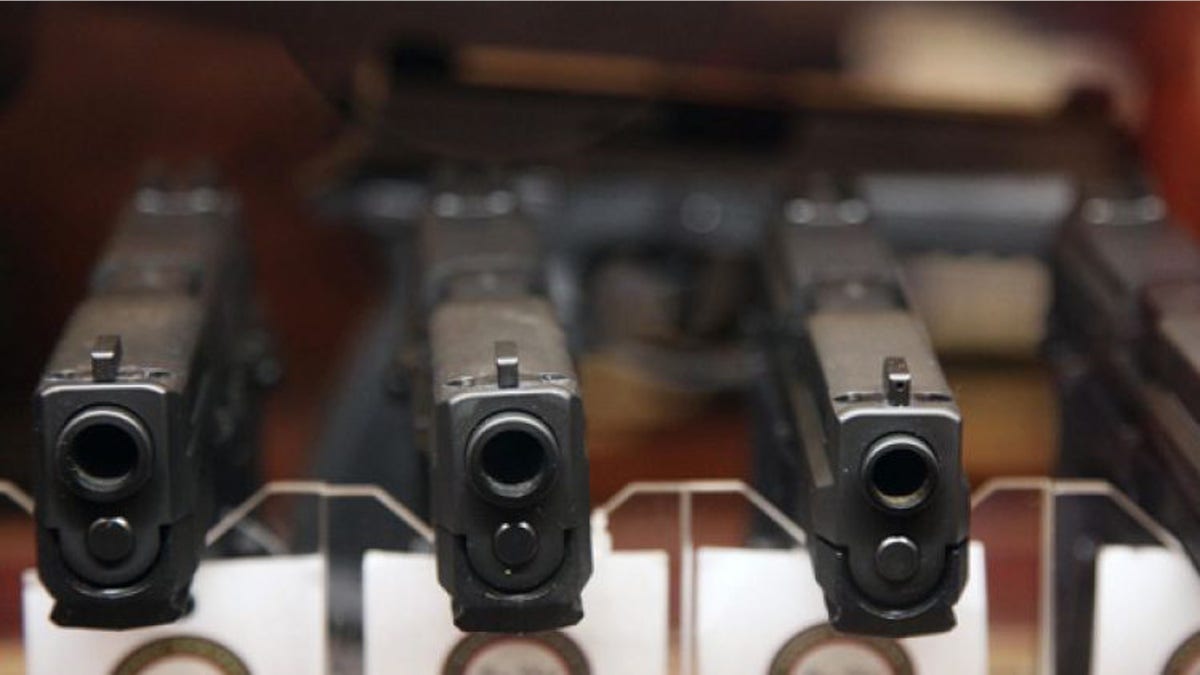
Jan. 4, 2013: Handguns are displayed in the sales area of Sandy Springs Gun Club and Range, in Sandy Springs, Ga. (AP)
A federal appeals court in Cincinnati deemed a law unconstitutional that kept a Michigan man who was committed to a mental institution from owning a gun.
The three-judge panel of the Sixth U.S. Circuit Court of Appeals unanimously ruled that a federal ban on gun ownership for those who have been committed to a mental institution violated the Second Amendment rights of 73-year-old Clifford Charles Tyler.
Tyler attempted to buy a gun and was denied on the grounds that he had been committed to a mental institution in 1986 after suffering emotional problems stemming from a divorce. He was only in there for a month.
Tyler’s lawyer, Lucas McCarthy, hopes that the ruling would have a “significant impact on the jurisprudence in the area of gun rights.”
The decision is the first by a federal appeals court to rule a federal gun law is unconstitutional since 2008. The U.S. Supreme Court’s ruling in D.C. vs. Heller struck down the Washington, D.C. ban on firearms ownership.
Federal law bans gun ownership for convicted felons, people under 18, illegal immigrants, drug addicts and those ordered by a court to a mental institution. The law also syas that people must have a chance to prove that their disqualifying disabilities have ended in order to possess a firearm legally.
Since 2008, states have been able to get federal grants to set up “relief from disabilities program,” which was defunded in 1992. Michigan has not set one up, which left Tyler without a way to prove that his so-called “disability” should no longer apply.
“The government’s interest in keeping firearms out of the hands of the mentally ill is not sufficiently related to depriving the mentally healthy, who had a distant episode of commitment, of their constitutional rights,” wrote Judge Danny Boggs, an appointee of President Ronald Reagan, for the panel.












































